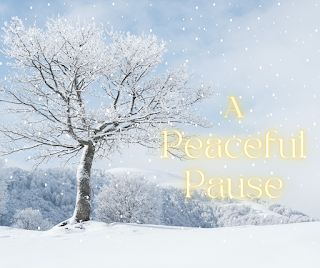It happens.
We all reach that point in the story where we feel stuck. For me, it often happens about halfway through the story. And right before the end. Often somewhere in the editing process as well. (It happens a lot.)
It's like the wheels turn into bricks, and the path turns to icy sludge.
And when that happens, argh. I want to set the pages or something on fire. But that is surprisingly not as effective at resolving the matter.
So how do I get unstuck? There’s no one guaranteed way, but here are a few of my favorites.
Get Physical
Physical fitness isn't precisely at the top of my task list when I’m in the middle of a deadline. But there’s little better than getting the blood pumping when the story won’t move. Often when my body feels slow and stagnant, it reflects in my writing, sometimes bogging me down even more.
It doesn’t have to be a lot of activity. Sometimes a gentle walk suffices.
In some cases when it’s a bad pain day and I need to get a lot more done, deep slow breaths help me clear my thoughts, even if it isn’t enough to resolve it.
If you need more than that, meditation can also help. The Calm app as well as Headspace provide breathing tracks along with guided meditations to help, and K. A. Emmons provides guided meditations for authors on YouTube. (
This is one of my favorites, but each one of hers I have tried has been lovely.)
Ask Someone You Trust for Their Opinion
This works in two ways. Sometimes there are people in your life who understand what you’re working on and how to get yourself out of the mire. They may have good advice to share. In that case, asking for their opinion can lead to direct solutions.
And sometimes you have people in your life who will tell you what they think and, as soon as they do, you realize you know what it is you really want to do. If this is the case, remember to be respectful and courteous. Most will understand if you explain that other people throwing out ideas helps you spring off the initial concept to new ones as well rather than the implication that you don’t value their advice. (Having been on both sides of this, honesty helps so much and reduces the risk of hurt feelings.)
Mark Down the Motivations
I don't always outline (I adore the discovery process too much to be able to commit to much more structure than a rough outline that gets modified significantly as the story progresses).
But when a story starts feeling like quicksand, one of the first things I check is whether I'm clear on the motivations of the characters. All of them. Even if they don't have a spoken line in the scene. And the motivations don’t even have to be big. But everyone always wants something.
One of my favorite Kurt Vonnegut quotes on writing refers to this situation: “Make your characters want something right away even if it's only a glass of water. Characters paralyzed by the meaninglessness of modern life still have to drink water from time to time.”
Figuring out the motivations and marking them down on a scrap of paper can go a long way toward breathing new life into the scene and helping you know where to go moving forward.
Approach It from Another Perspective
Sometimes I feel stuck because I've started the scene at the wrong point or in the wrong POV. (I like to joke that I start every story two chapters too early or two chapters too late.)
When that happens, the simplest thing I can do is just start rewriting a bit. I like to try starting the scene from another point or a separate character. As I write in third person deep limited POV, this requires that I consider the details that that character notices (sometimes I combine this with the motivation exercise above). Those added details often bring to light why the scene is not working or what is currently missing to make it stronger.
Recognize It Might Be Part of Your Process
Becca Symes often talks about questioning the premise and analyzing why we respond the way we do. In quite a few of her Quitcast videos on getting unstuck and the Stuck List, she discusses how sometimes it is just a part of the process for us to get stuck. Our minds are still working through the story, and really what we need is to just be stuck for a little bit.
While a little alarming to know that you can’t just blast through it, it is comforting to know that it may simply be a necessary stage for your mind to continue processing and refining the story before you can move on.
Feeling stuck happens to all of us. It may even be part of your process. Whatever the cause, know that this feeling and sensation won't last forever. So try not to worry. It may take multiple attempts or techniques to move past the stuckness, but eventually you will get unstuck. This is just a part of being an author. And sometimes it’s good just to know you are not alone.
So what about you? Do you have any favorite techniques for getting yourself out of being stuck?

Jessica M. Butler is a USA Today bestselling romantic fantasy author who never outgrew her love for telling stories and playing in imaginary worlds. She lives with her husband and law partner, James Fry, in
rural Indiana where they are quite happy with their two cats and all of the wildlife and trees.











